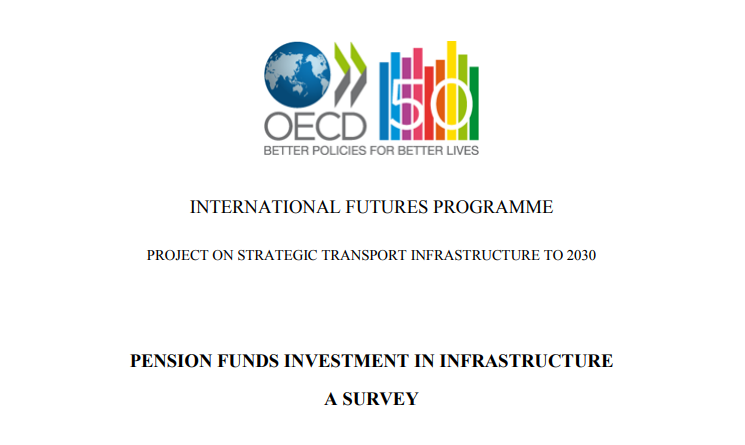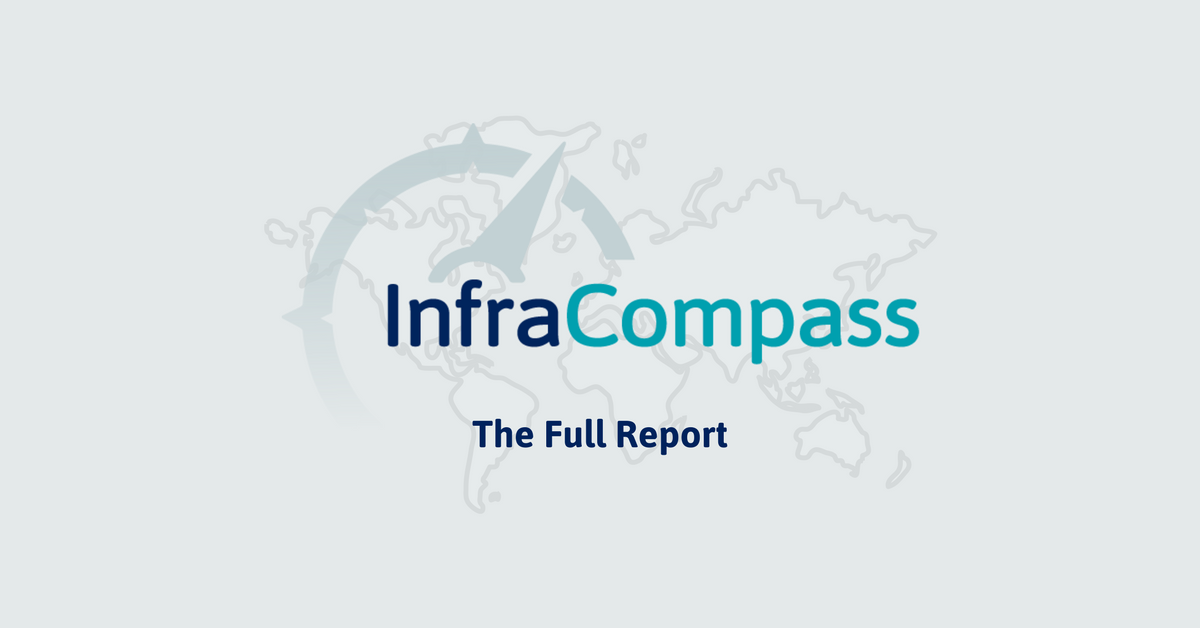747 results found
Featured results



More results
This paper investigates the emerging global landscape for public-private co-investments in infrastructure.


This document states that increased public infrastructure investment raises output in both the short and long term, particularly during periods of economic slack and when investment efficiency is high.



This report gives an overview of the main types of government and market based instruments and incentives able to boost the mobilisation of financial resources to long-term investment.



This paper takes stock of existing indicators and points to recurrent issues affecting the mobilisation of greater investment in infrastructure.






The objective of this survey-based study was to understand the main problems encountered by pension funds when investing in infrastructure.


Ensuring disadvantaged communities have access to adequate infrastructure is a key goal of a new Hub tool, writes Morag Baird, Senior Manager, Leading Practices and Policy, GI Hub.



This report provides an outline ending in 2015 of ASEAN connectivity, the report also outlines future challenges the Master Plan from 2015 on.


Automated fare collection (AFC) systems are a key component of sustainable, high-quality urban transport services. This paper addresses the objectives, challenges and lessons learned from AFC schemes, with a particular focus on emerging markets and second-tier cities with limited resources.

These guidelines define the assurance options to be undertaken for a major project, such as: Project Validation Review (PVR) for a major policy initiative, OGC Gate 0 for major programs and more.

We reviewed existing literature, conducted case studies and interviews, and found that the smart cities context has transformed traditional ITS into “smart mobility” with three major characteristics: people-centric, data-driven, and powered by bottom-up innovations.

Connections is a series of concise knowledge notes from the World Bank Group’s Transport and ICT Global Practice. Connections discusses projects, experiences, and front-line developments in Transport and ICT. This set includes notes from 2015 and 2016.

The GI Hub hosted a global webinar on risk allocation in PPPs with Norton Rose Fulbright and IPFA last week. The webinar was extremely well attended and saw active participation from public sector and private sector participants from around the world.
The Global Infrastructure Hub has urged Multilateral Development Banks to become "joined-up" in their approach to promoting new infrastructure in emerging countries.
The GI Hub has now signed a consultancy contract for the development of a Concession Management Tool, following a competitive tender. The tool, expected to be delivered by the end of 2017, will provide practical guidance that can be used by government teams around the world and aims to identify leading practices related to public-private partnership (PPP) concession management, as well as addressing the common challenges which may arise throughout the construction and operations phases.
District heating (DH) is the most common form of heating for urban dwellings and businesses in many of the EBRD’s countries of operations (CoOs).










 Link
Link


